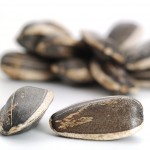
Drug treatments are commonly used to treat children and young people with attention deficit hyperactivity disorder (ADHD). Methylphenidate and amphetamine are two of the most popular, but these are not effective for all patients and sometimes cause problematic side effects.
Children and adolescents with ADHD have been shown to have significantly lower plasma and blood concentrations of polyunsaturated fatty acids (PUFA) and, in particular, lower levels of omega-3 PUFA. These findings suggest that PUFA supplementation may reduce the attention and behaviour problems associated with ADHD.
A new Cochrane review explores this issue by comparing the efficacy of PUFA to other forms of treatment or placebo in treating the symptoms of ADHD in children and adolescents.
The reviewers conducted a comprehensive search and found 13 randomised controlled trials (including a total of 1,011 patients) to include in their review.
Eight of the included trials had a parallel design:
- 5 compared an omega-3 PUFA supplement to placebo
- 2 compared a combined omega-3 and omega-6 supplement to placebo
- 1 compared an omega-3 PUFA to a dietary supplement
Five of the included trials had a cross-over design:
- 2 compared combined omega-3/6 PUFA to placebo
- 2 compared omega-6 PUFA with placebo
- 1 compared omega-3 to omega-6 PUFA
- 1 compared omega-6 PUFA to dexamphetamine
Supplements were given for 4-16 weeks.
Here’s what they found:
- There was a significantly higher likelihood of improvement in the group receiving omega-3/6 PUFA compared to placebo (two trials, 97 participants; risk ratio (RR) 2.19, 95% confidence interval (CI) 1.04 to 4.62)
- However, there were no statistically significant differences (when all participants receiving PUFA supplements were compared to those receiving placebo) in parent-rated:
- ADHD symptoms (five trials, 413 participants; standardised mean difference (SMD) -0.17, 95% CI -0.38 to 0.03)
- Inattention (six trials, 469 participants; SMD -0.04, 95% CI -0.29 to 0.21)
- Hyperactivity/impulsivity (five trials, 416 participants; SMD -0.04, 95% CI -0.25 to 0.16)
- There were no statistically significant differences in teacher ratings of:
- Overall ADHD symptoms (four trials, 324 participants; SMD 0.05, 95% CI -0.18 to 0.27);
- Inattention (three trials, 260 participants; SMD 0.26, 95% CI -0.22 to 0.74)
- Hyperactivity/impulsivity (three trials, 259 participants; SMD 0.10, 95% CI -0.16 to 0.35)
The reviewers concluded:
Overall, there is little evidence that PUFA supplementation provides any benefit for the symptoms of ADHD in children and adolescents. The majority of data showed no benefit of PUFA supplementation, although there were some limited data that did show an improvement with combined omega-3 and omega-6 supplementation.
It is important that future research addresses current weaknesses in this area, which include small sample sizes, variability of selection criteria, variability of the type and dosage of supplementation, short follow-up times and other methodological weaknesses.
Link
Gillies D, Sinn JKH, Lad SS, Leach MJ, Ross MJ. Polyunsaturated fatty acids (PUFA) for attention deficit hyperactivity disorder (ADHD) in children and adolescents. Cochrane Database of Systematic Reviews 2012, Issue 7. Art. No.: CD007986. DOI: 10.1002/14651858.CD007986.pub2.
